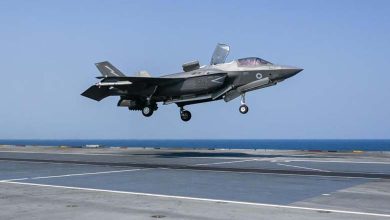Labor, Espionage, and Assassinations… A Book Unveiling Britain’s Relationship with the Brotherhood Since Its Inception

Following Britain’s decision to place the Muslim Brotherhood at the top of its extremism list, Arab and Western media outlets, along with social media activists, have been sharing excerpts from the book “Secret Relations… Britain’s Complicity with Radical Islam”. This book is written by the journalist and researcher, a visiting member of the French Institute of International Relations and the German Institute of Foreign Policy, and author of several significant books, Mark Curtis.
After the ban on Hizb ut-Tahrir… What is the fate of the Muslim Brotherhood in Britain?
The author stated that Britain, within the framework of its well-known policy of “divide and rule”, allied with religious movements and forces in its numerous colonies to strengthen its control over these territories and continue exploiting their resources for as long as possible. Thus, Britain found itself seeking “Islamic forces” to cooperate with in order to achieve this goal, especially after Turkey unexpectedly joined Germany and the opposing powers in World War I. In Egypt, one of Britain’s most important colonies at the time, the British occupying authorities quickly found their ally in the Muslim Brotherhood movement, founded by an Arabic language teacher named Hassan el-Banna in the Egyptian city of Ismailia in 1928, as a reformist religious movement.
The author added that from the beginning, Hassan el-Banna had political interests and was eager to engage with the tumultuous events that befell his country in the 1920s. He was a man with a pragmatic personality, willing to deal with any party to achieve his hidden goals. This personality made him willing to cooperate with attempts by palace officials to attract his group, after its influence grew, to strengthen the palace’s position against the popular Egyptian nationalist parties of the time, especially the Wafd Party, and to resist communist (atheist) tendencies that were beginning to spread widely.
The book presents classified official British documents released in recent years, revealing the secret dealings between the Muslim Brotherhood and British intelligence agencies, which provided money to founder Hassan el-Banna to control them, direct their actions, and use them to their advantage. The author continues by stating that British intelligence services were aware that many ideas of the religious groups and forces they dealt with had anti-Western tendencies, yet this did not prevent them from maintaining secret contacts and cooperation with them to achieve short-term tactical objectives, such as preserving natural resources and countering nationalist ideas, which they viewed as more dangerous to the occupation authorities than religious ideas.
The documents included in the author’s book reveal that the secret funding provided by British authorities in Egypt to the Muslim Brotherhood was coordinated with the Egyptian royal palace. One document states: “The Egyptian government will secretly provide financial assistance to the Muslim Brotherhood, but will request financial aid from our embassy for this purpose… Through this assistance, the Egyptian government will work to plant some secret agents within the group to monitor its activities and operations, and we, in turn, will obtain information about the group from these agents, then communicate it to the Egyptian government.”
The book highlights that cooperation with the group intensified particularly in the 1940s, with the onset of World War II. However, what is most strikingly revealed in the book is that Britain’s cooperation with the group did not cease even after the July 1952 revolution, as Britain continued to maintain secret relations with the Muslim Brotherhood even during the withdrawal negotiations led by Nasser with the British authorities, which resulted in the signing of the withdrawal agreement in October 1954.
The reason for this continued cooperation, as stated in the documents, was that Britain saw cooperating with the Muslim Brotherhood as much better than dealing with Nasserite and nationalist forces, which considered national independence and getting rid of Western domination in the Arab region as their top priority. This cooperation aimed to push the group into undertaking secret operations to create disturbances and instability to undermine the foundations of the new government. In fact, Britain contacted members of the Muslim Brotherhood during the Suez Crisis as part of its overall plan to contact politicians, parties, and new forces to cooperate in overthrowing Nasser, which eventually led to his assassination, with the Muslim Brotherhood being the prime suspects, followed by the assassination of President Anwar el-Sadat.
The book explains that while the Muslim Brotherhood‘s complicity with British intelligence and others was not a hidden matter, the significance of the information contained in the book lies in the fact that it is derived from official British documents. The author reinforces this information by citing revelations by Ken Livingstone, former Mayor of London, in March 2008, that the Egyptian Muslim Brotherhood was receiving money from MI6, the British foreign intelligence service, and that this money helped the group remain “a real threat and danger to regimes in Egypt.”












